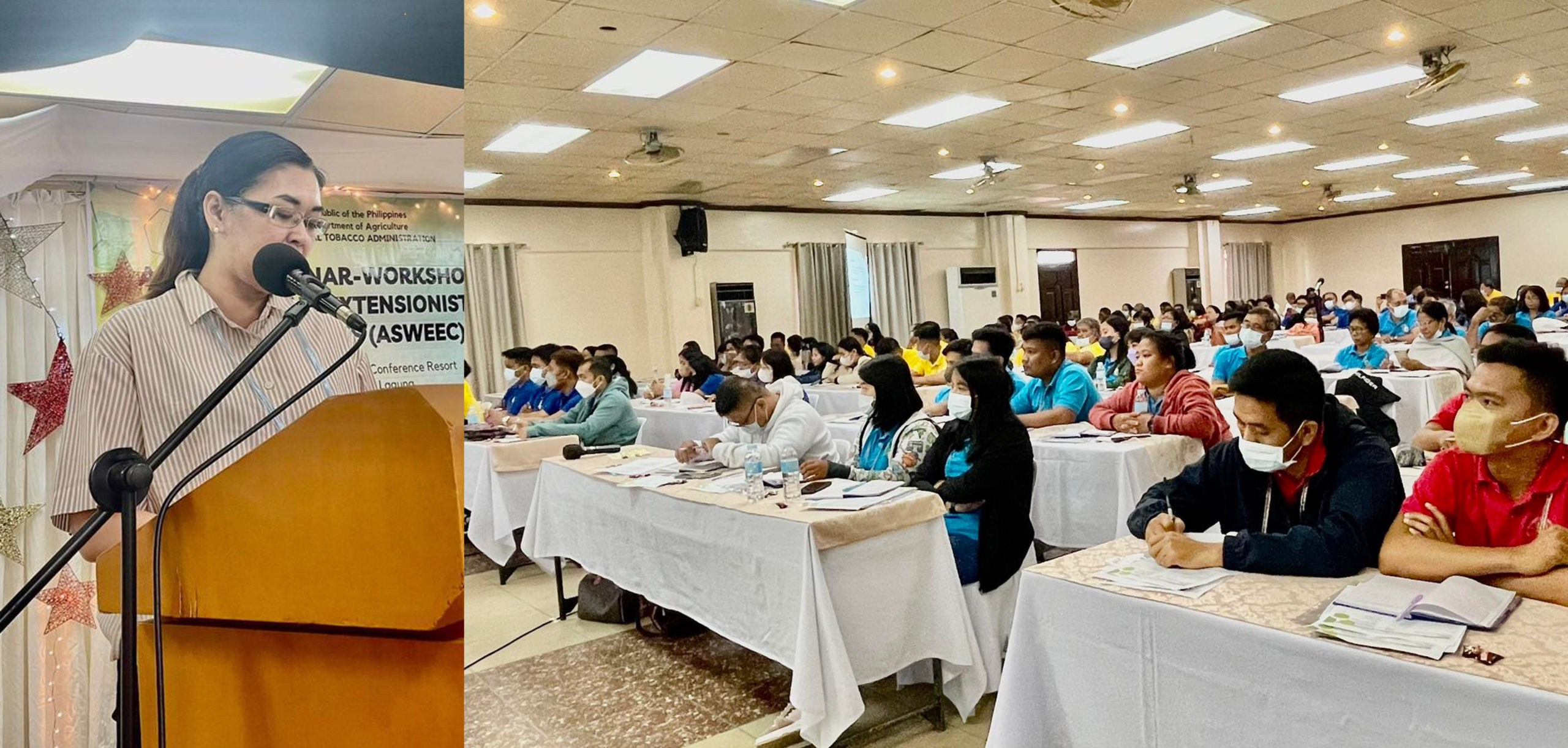NTA Administrator Belinda Sarmiento-Sanchez cites the vital roles of extension workers for the sustainable production of high-quality tobacco in the country.
This was her message during the first day of the Annual Seminar–Workshop on Enhancing Extentionists’ Capabilities (ASWEEC) held at the Monte Vista Hotspring and Conference Resort, Pansol, Calamba, Laguna on November 24-25.
Administrator Sanchez said that the NTA extension workers are the frontliners for reaching out the current trends of tobacco farming technologies in the countryside.
She vowed the continuing support of the NTA top management to all the endeavors of the tobacco extension workers to continuously achieve the demand production of high-quality tobacco.
Participated by at least 130 extension workers, technicians, and branch managers of the NTA nationwide, the ASWEEC aims to review the current tobacco production practices; and to boost the knowledge of the extension workers to be more effective in disseminating the accurate tobacco production technology. It is also a venue for sharing tobacco farming best practices with consideration on environmental protection and maintenance.
The forum started with the revisiting of the NTA history, mandate, and the 8-point NTA agenda, priority programs, and projects, which was presented by Dr. Giovanni B. Palabay, the OIC Deputy Administrator for Operations.
NTA Director Nestor C. Casela discussed the programs for sustainable tobacco production including the Good Agricultural Practices (GAP) and the Agricultural Labor Practices.
Other topics to be discussed during the forum are the following: persuasion and approaches in technology transfer; principles of clear and effective writing; report/document packaging cum workshop; community organizing; governance and management of an association/cooperative; extension worker as a professional; Integrated Pest Management; fertilizer, soil and water management/ maturity indices, and harvesting; and curing structure and curing management.
The NTA is the sole tobacco government agency mandated to Improve the economic and living conditions and raise the quality of life of tobacco farmers including those who depend upon the industry for their livelihood. It also promotes the balanced and integrated growth and development of the tobacco industry to help make agriculture a solid base for industrialization.

